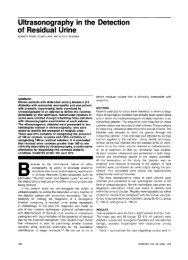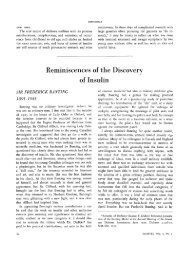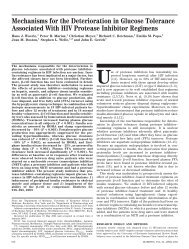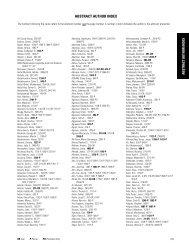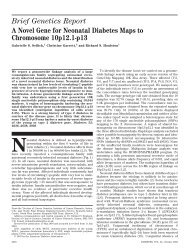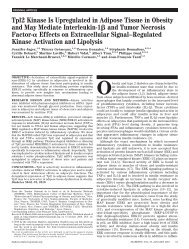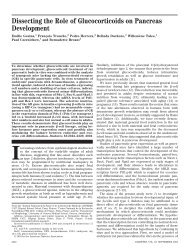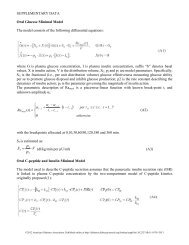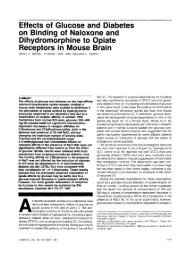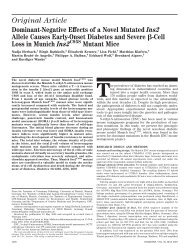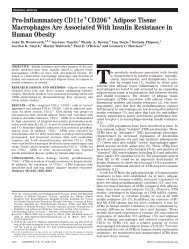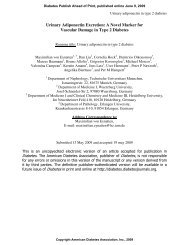2011 ADA Posters 1261-2041.indd - Diabetes
2011 ADA Posters 1261-2041.indd - Diabetes
2011 ADA Posters 1261-2041.indd - Diabetes
Create successful ePaper yourself
Turn your PDF publications into a flip-book with our unique Google optimized e-Paper software.
Integrated Physiology/<br />
Obesity<br />
POSTERS<br />
1637-P<br />
Delayed Insulin Secretory Responses Are Seen in Patients with<br />
Long Duration of Type 1 <strong>Diabetes</strong> and Residual Insulin*<br />
JENNIFER SHERR, LINDA RINK, KEVAN HEROLD, New Haven, CT<br />
Calculation of insulin secretory rates (ISR) can provide quantitative and<br />
qualitative information of insulin secretion during a mixed meal test (MMT).<br />
We previously reported that some patients with type 1 diabetes (T1D) have<br />
a delayed secretory response during a MMT compared to non-diabetic<br />
controls and that their decline in insulin secretion was less than patients<br />
with T1D who showed an early secretion profi le (i.e. @< 45min). To determine<br />
if there is a relationship between disease duration and ISRs, data derived<br />
from MMT were analyzed in 1) 20 subjects with T1D diagnosed < 1 year 2)<br />
12 subjects with T1D 2-5 years duration, 3) 21 subjects with T1D >5 years,<br />
4) 38 non-diabetic controls. All subjects with T1D 5<br />
years subjects had undetectable c-peptide levels and were excluded from<br />
further analysis. Chronobiological Series Analyzer (CSA) software was used<br />
to calculate ISR by deconvolution of C-peptide using a two-compartment<br />
model for hormone clearance. Parameters used accounted for the subject’s<br />
age, sex, height, and diabetes status. Total ISR area under the curve (AUC)<br />
and time of peak insulin secretion was calculated for each subject. There<br />
was a decline in total insulin secretion with duration of T1D (p



